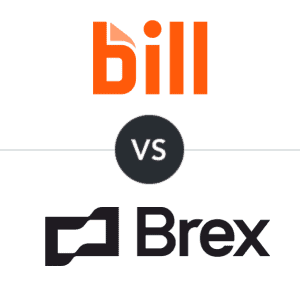Learn how your large business can benefit from the tailored perks and rewards of a corporate card, and find out how and where to apply.
Ready to start reaping the benefits and rewards of a corporate credit card? The good news is that applying for corporate credit cards has gotten easier in the last few years as they have become more popular. Fintech companies offering corporate cards have made it even easier to get a corporate card for your business quickly.
Find out exactly what the process entails and how to improve your chances of getting approved for a corporate credit card with this step-by-step guide.
How To Qualify For A Corporate Credit Card
Qualifying for a corporate credit card generally requires your business to be a well-established corporation with a S-corp, C-corp, or LLC structure. You’ll also need high annual revenue (think $1M+), large cash reserves, and a long amount of time in the business with no recent bankruptcies — this is because you’ll be expected to make daily, weekly, or monthly repayments and can’t carry a balance on a corporate card, so issuers need to know your company can handle repayments.
Requirements for corporate credits are also so strict because with a corporate credit card, the business itself is liable, rather than the business owner. Because the card issuer can’t pursue the business owner’s personal assets if the account becomes delinquent. This level of liability protection is why corporate cards are such a great option for business owners, but it also explains why card issuers are so picky about who gets approved or not.
It’s worth noting that some fintech companies make exceptions to these strict requirements. For example, BILL Spend & Expense accepts sole proprietor business structures and has much lower cash reserve amounts than its competitors. Brex allows for startups with little revenue or time in business but with significant equity investment.
To improve your chances of qualifying for a corporate credit card, you’ll need to show that your business is profitable and reliable. The best way to do this is to have:
- Large monthly or annual revenue
- A strong business credit score (75-80+)
- $20,000+ in cash reserves
- A business history free from bankruptcies and liens
- 50+ employees
- 1-2+ years in business
- Bonus: Equity investment into your business
- Bonus: A business bank account that shows reliable earnings and spending
If your business doesn’t meet these requirements, take a look at the best small business credit cards instead, where we include a variety of cards to meet your business’s needs.
How To Apply For A Corporate Card In 6 Steps
Getting a corporate credit card differs somewhat from the process of getting a business credit card. The main differences are that corporate cards have different requirements for getting approved and most companies don’t allow for you to immediately submit an online application, which is the norm for traditional business credit cards.
To help make applying for a corporate card easier, we’ve broken the process down into six simple steps so that you can know exactly what to expect.
Check Your Business Credit Score
Because corporate cards don’t hold any single person personally liable, issuers won’t look at personal credit histories during the approval process. This means you won’t have any personal credit score pulls, and you won’t have to sign a personal guarantee to qualify. However, an issuer might consider your company’s business credit score before approving your application.
Unfortunately, you cannot obtain a free business credit report from the major credit bureaus like you can with a personal credit score. Luckily, plenty of affordable services provide you with access to your business credit report, including Nav, Dun & Bradstreet Credit Insights, and Experian.
With all that said, it’s worth noting that a business credit score isn’t the be-all-end-all when it comes to getting a corporate card. Brex, for example, considers a business’s cash flow and spending patterns (as well as its credit history) during the approval process rather than focusing on just credit scores.
Assess Your Credit History, Business Structure, & Revenue
Before applying for a corporate credit card, take an honest look at your business. A corporate card issuer is going to look at your:
- Business credit score
- Monthly or annual revenue
- Cash on hand reserves
- Number of employees
- Time in business
- Past bankruptcies or liens
- Potential equity investments into your business
Knowing each of these metrics before you apply is key to improving your chance of being applied for a corporate credit card. For example, if you’re a new business with little time in business and little revenue, you won’t qualify for most corporate cards. Your option will likely be Brex which takes equity investment and business size into consideration for approval. Similarly, if you have little cash on hand, many corporate cards will be out of your range, but some, like BILL, could be a good fit.
Having an honest perspective of your business’s history and current performance ensures that you apply for the right corporate card and saves you time, frustration, and application denials.
Choose The Right Corporate Card For Your Business
One of the best ways to increase your chances of getting approved for a corporate credit card is applying to the right corporate credit card.
Not all corporate cards are created equal. Many vary in terms of:
- Rewards offered
- Spend management features offered
- Repayment terms
- Eligibility requirements
The most important one to look into is eligibility requirements. Depending on your business structure and income, you may not qualify for the highest reward earnings or competitive repayment terms. It’s best to start with which cards you can actually qualify for, then compare rewards, perks, and features from there. This way, you don’t waste your time applying for a corporate card that you don’t qualify for.
If you qualify for multiple corporate credit cards, taking a good look at your business’s spending habits and choosing a card with a reward structure that matches your spending habits can help you maximize rewards.
Gather Business Information & Documentation
To make your application easier, here’s what you’ll need to apply for most corporate credit cards:
- Business EIN
- Business name & address
- Business incorporation and/or registration documentation
- Number of full-time and part-time employees
- Your business bank account login information or most recent statements
- Most recent tax statements and/or profit and loss reports
Gathering this information ahead of time can help speed up the corporate card application process (plus, you likely have a lot of this information handy already if you completed steps 1 and 2, looking at your business history).
Fill Out The Corporate Card Application
After you’ve shopped around and picked the best fit for your company, note that the application process for corporate cards varies by issuer. Generally, most will require that you submit an inquiry before officially entering the process. This inquiry is often in the form of an online form that can be accessed via the card issuers’ website, but can sometimes be done via phone or email as well. This process is a bit different from standard credit cards, which you can often apply for online straightaway.
Once you’ve completed the initial inquiry, you will likely be led to an online application, though some issuers may still operate primarily via phone or in person, so you may have to wait for a representative to contact you first. (A general rule of thumb for credit cards is that you can expect more traditional applications from traditional banks and are more likely to find online applications with fintech companies.)
The initial application process itself can vary in length depending on the corporate card issuer.
Provide Any Follow-Up Information Or Documentation Requested
Corporate card approval decisions can vary in length. Some make decisions virtually right away, while other issuers can take days or weeks to finalize an approval or denial.
This potentially long waiting period can be frustrating for business owners. However, having all of your documentation prepared beforehand can help you shorten the application time. This way, if the card issuer asks for more information, you eliminate the back-and-forth scramble to find the information they need and can provide documentation right away instead.
If you want to know how long your application with a specific corporate card issuer will take, you can check out our corporate card reviews for a full breakdown of the application process. Looking at what other users have to say in customer reviews can also give you a sense of how quickly or slowly a card issuer moves.
Once you get approved for your corporate credit card, you may have to wait an additional period to receive your physical cards, though many issuers offer virtual cards or digital wallets, so you can start using your corporate card right away.
Don’t Forget To Create A Corporate Credit Card Policy
You’re on the final step of getting a corporate card! After the application and approval, don’t forget this important last step — creating a corporate credit card policy before rolling out employee cards to your workers.
Your corporate card policy should outline what purchases are acceptable, whose responsibility it is for repairing purchases, etc. This way, there’s no confusion on how employee corporate cards will work for your business. Check out our top tip for writing a corporate credit card policy to help make the process easier for you and your employees.
Also, check out our best tips for managing a corporate card so that you can stay up-to-date on all repayments and maximize your corporate card rewards.













